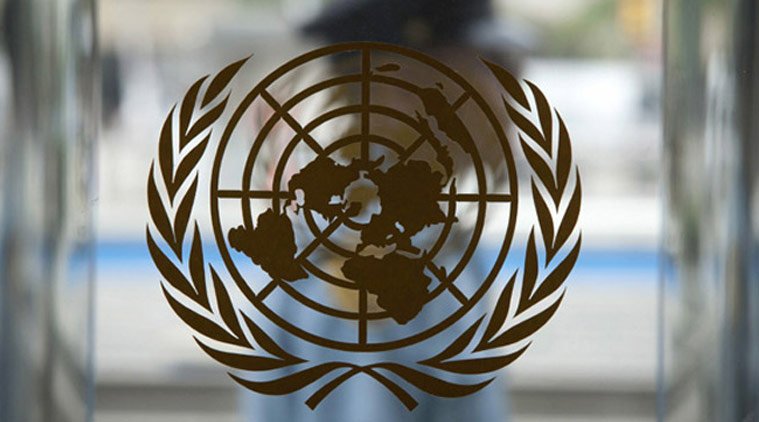Statement by Dr. Vladimir Shin, Deputy Director of the Department of International Information Security of the Ministry of Foreign Affairs of the Russian Federation, at the Thematic Discussion on Other disarmament measures and international security in the First Committee of the 77th Session of the UNGA
Distinguished Mr. Chair,
Distinguished colleagues,
We have consistently promoted a unifying agenda in the area of arms control, disarmament and non-proliferation (ADN). We have presented a resolution entitled "Strengthening and developing the system of ADN agreements". We look forward to its adoption by consensus and its positive effect on constructive co-operation on the whole range of issues of international peace and security.
On agenda item 94 I would like to stress the following. In 2020, upon initiative of the Russian Federation and with overwhelming support of the UN Membership the Open-ended Working Group (OEWG) on security of and in the use of ICTs 2021-2025 was created. The OEWG is the only negotiation mechanism on these matters within the UN system. The value of this format is such that it allows all States without exception to participate directly in the decision-making process on issues that affect national security interests, as well as to discuss all relevant initiatives of States on a truly democratic, open and transparent basis. In this context, we welcome and share the views voiced previously by the Non-Aligned Movement, ASEAN, CARICOM and the Arab group of States in support of the OEWG, as well as their readiness to continue constructive work within this format.
The OEWG concluded the first year of its work by consensus adoption of its annual progress report on 29 July 2022. The document contains important provisions that allow to create a basis for shaping an international legal regime for regulating the use of ICTs and for developing interstate cooperation in this realm.
The Russian Federation believes it is essential not only to consolidate the success achieved, but also to aim the OEWG at further constructive negotiations for agreeing upon specific measures to strengthen peace and security in information space and address issues of digital development. With these objectives Russia has submitted in the First Committee a draft resolution entitled “Developments in the Field of Information and Telecommunications in the Context of International Security”, tabled annually since 1998.
The document is unifying, non-confrontational and depoliticized in nature. It complements the draft decision endorsing the first progress report of the OEWG tabled by Singapore and welcomes its efforts that we fully support.
Our text is based on the provisions of the UN General Assembly resolutions previously agreed by Member States, as well as on consensus reports of the first and the current OEWG. The objective is to safeguard the Group as the key negotiation platform dealing with the whole range of issues of international information security under the auspices of the Organization, and to prevent splitting up this topic to parallel formats duplicating one another. This is the aspiration of the broad international community, and the Group is its asset.
The draft resolution confirms the previous consensus agreement to further elaborate all national initiatives on security in the use of ICTs within the OEWG. It contains specific proposals on capacity-building in the use of ICTs. It also confirms the need to decide on the future format of regular institutional dialogue on these matters on a truly universal basis – within the existing Group. What is more, any such mechanism should be launched solely upon conclusion of the work of the OEWG in 2025. We have to give the Group a chance to fully reveal its potential in the remaining three years of its mandate.
The adoption of Russia’s draft resolution becomes crucial this year, when a group of States has submitted a draft resolution basically proposing to create an alternative to the OEWG format. We see this as another attempt to hijack the Group’s activities, to politicize the negotiations and to impose on the international community a premature decision on the format of future work in this area. We believe this approach is totally unacceptable; it contradicts the logic and the interests of an overwhelming number of countries.
The more the Programme of Action initiators insist on its establishment, the more questions we have to ask them. In our view, it is illogical to first decide on the creation of any format and then start thinking of its substance and working methods. It goes against common sense. We are ready to discuss the PoA within the OEWG in accordance with its mandate and with the recommendations of the first annual progress report. We believe that three years – till 2025 – are more than enough to elaborate collectively an understanding on the need for creating this format, its possible scope and modalities, including decision-making and funding mechanisms. The efforts of the PoA sponsors that we have witnessed up till now, look as an attempt to push forward a format that corresponds to the interests of Western countries, in which decisions will be made by a narrow group of States and imposed on the remaining majority. In the current version, for as much as it has been watered down, the PoA cannot be perceived differently than a manifesto to cybercolonialism.
We call on the UN Member States to support Russia’s draft resolution. A vote in favor of this document is not a vote for Russia; it is a vote for continuing constructive interstate interaction and result-oriented negotiations in the interests of strengthening peace, security and stability in information space.
Thank you.
